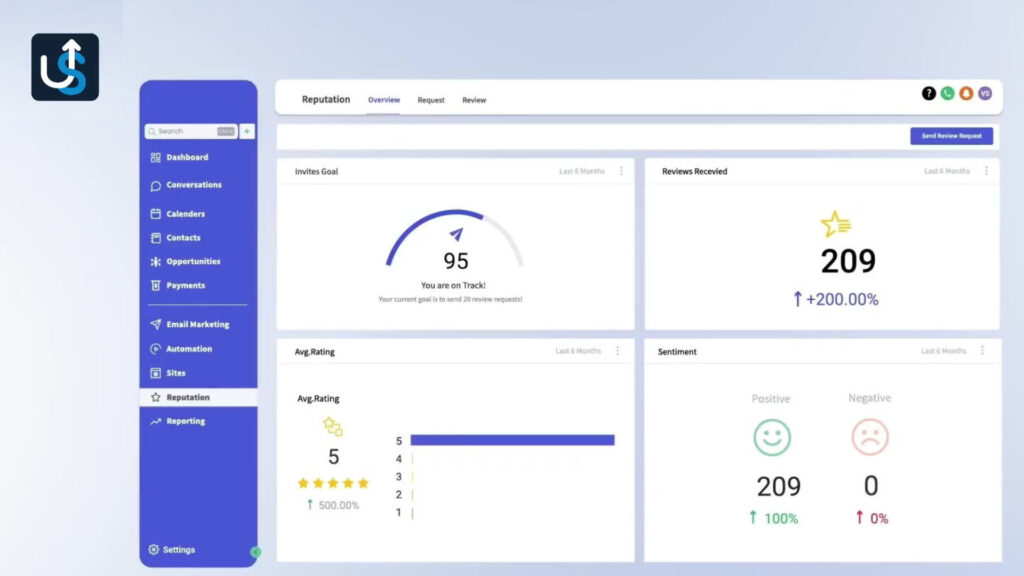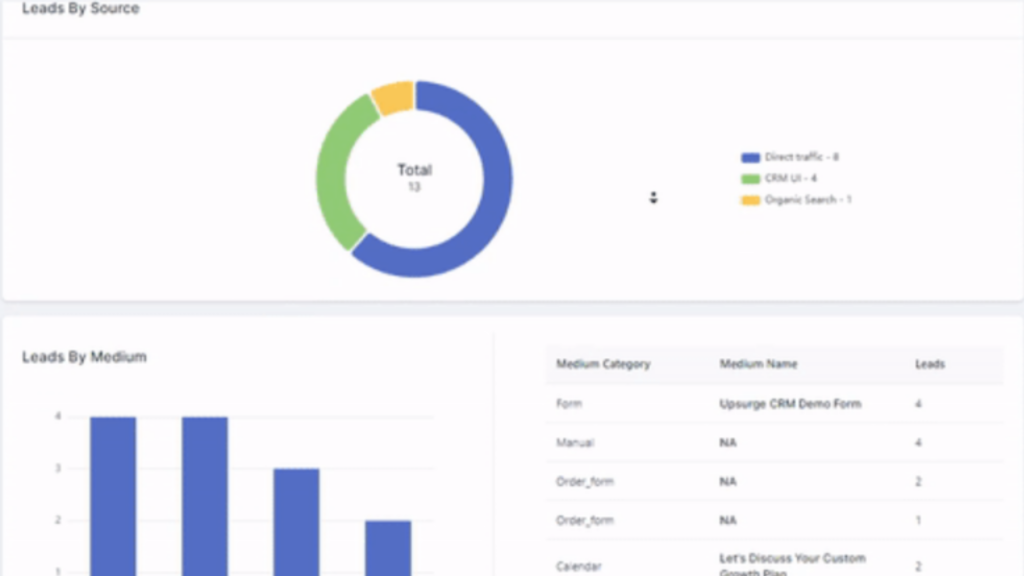
To succeed, startups must maximize every opportunity to drive revenue and build strong, lasting relationships with their customers. One of the most effective ways to achieve this is by leveraging a powerful Customer Relationship Management (CRM) system.
A robust CRM solution helps startups streamline their sales processes, enhance customer engagement, and provide valuable insights that lead to better decision-making. From maintaining a centralized database of customer information to automating repetitive tasks, a well-chosen CRM can significantly impact a startup’s Monthly Recurring Revenue (MRR) and overall growth trajectory.
This article will delve into why startups need a CRM, the key features to consider when selecting one, and how to navigate common challenges during implementation. Whether you’re a new startup looking to establish a strong customer base or an emerging company aiming to scale, understanding the strategic advantages of a CRM is crucial for sustained growth and success.

The benefits of using a CRM for startups are manifold. Firstly, CRM software helps startups maintain a centralized database, making it easier for teams to access customer information and communication history. This fosters better collaboration among sales reps and improves the customer experience.
CRM tools provide insights into customer behavior, allowing startups to tailor their approach and develop targeted marketing strategies. The automation features of CRM systems also reduce the burden of manual tasks, enabling sales teams to focus on closing deals rather than administrative work.
According to Study, 74% of CRM users say it improves access to customer data, while 50% report improved productivity and sales. CRM allows startups to gain a competitive edge by understanding market trends and customer needs better. According to industry data, companies that use CRM see a 41% increase in revenue per salesperson.
Implementing the best CRM for startups can elevate a startup to the next level by providing actionable insights and enhancing decision-making processes. CRMs help startups manage the sales cycle efficiently, from lead generation to closing. By utilizing sales automation features, startups can streamline their sales funnel and improve communication with potential customers.
The right CRM offers analytics and reporting tools that allow startups to measure performance, identify trends, and adjust strategies accordingly, ultimately leading to data-driven growth.
By integrating CRM into their operations, startups can align their sales and marketing efforts, enhance customer retention rates, and pave the way for scalable growth.

Despite the numerous benefits of CRM software for startups, there are challenges associated with its implementation. One common pitfall is the failure to adequately train the sales team on how to use the CRM effectively. This can lead to poor adoption rates and ultimately render the CRM ineffective. According to a recent study, only 40% of CRM implementations achieve full adoption by users within the first year.
Proper training and support can increase user adoption rates by up to 70%
Startups often struggle with data quality; if customer data is not entered accurately or kept up to date, it can lead to misguided strategies and lost opportunities. Statistics reveal that over 30% of data in CRM systems becomes outdated annually, making data management a critical challenge. Furthermore, some startups may underestimate the time and resources needed for a successful CRM implementation, which can hinder the overall effectiveness of the system.
The most advanced CRM is only as good as the data it holds, Without accurate, updated information, even the best systems can fail to deliver results
To overcome these challenges, startups should prioritize comprehensive training for their teams. Offering ongoing support and resources can help ensure that all users are comfortable with the CRM system. Data suggests that companies investing in training are 3.6 times more likely to succeed with CRM adoption.
Establish a dedicated CRM champion within your team to provide guidance and support throughout the implementation process
Additionally, establishing clear data entry protocols can help maintain data quality and reliability. Startups should also consider starting with a phased implementation approach, allowing them to focus on specific functionalities before rolling out the entire CRM system. This can help teams adapt gradually and provide the necessary feedback for adjustments.
Phased CRM implementations have a 63% higher success rate compared to full-scale rollouts
Managing change is a critical aspect of CRM implementation. Startups should foster a culture that embraces the use of CRM as a collaborative tool rather than a burden. Engaging team members in the selection process can increase buy-in and ensure the chosen CRM aligns with their needs. Companies that involve employees in CRM decisions see a 24% higher adoption rate, highlighting the importance of inclusivity.
Regular feedback sessions can also help address concerns and promote continuous improvement. By emphasizing the benefits of using a CRM, such as enhanced efficiency and improved customer relationships, startups can motivate their teams to fully engage with the system.
Highlight early wins and successes to build momentum and show the tangible value of the CRM system
By understanding and addressing these challenges, startups can make the most of their CRM investment and set the stage for sustainable growth.

When choosing a CRM for your startup, consider the following key features that align with your business needs:
By focusing on these features, you can choose a CRM that enhances your startup’s productivity, collaboration, and growth potential.

CRM tools play a vital role in streamlining the sales process. By providing visibility into the sales pipeline, CRMs help sales teams identify where leads are in the sales cycle and prioritize follow-ups accordingly.
This ensures that no opportunities fall through the cracks and that sales reps can focus on converting leads into customers. The ability to automate repetitive tasks, such as sending follow-up emails or scheduling meetings, allows sales teams to allocate more time to building relationships and closing deals.
Sales automation is one of the most compelling features of CRM systems. By automating tasks such as lead assignment, follow-ups, and reporting, CRMs can significantly improve efficiency within sales teams.
These automation features help eliminate manual errors and save time, allowing sales reps to focus on strategic activities that drive revenue. Additionally, CRM software can integrate with other tools like email marketing platforms, allowing for cohesive campaigns that enhance lead nurturing and conversion rates.

Tracking sales performance is crucial for any startup aiming for growth. CRM systems provide comprehensive analytics and reporting capabilities, enabling startups to evaluate individual and team performance. Metrics such as win rates, average deal size, and sales cycle length can be easily monitored through CRM dashboards.
This data-driven approach allows startups to make informed decisions, adjust strategies based on performance trends, and ultimately improve their sales processes. By continuously analyzing performance data, startups can refine their sales strategies and foster a culture of accountability and improvement within their sales teams.

One of the most critical decisions revolves around how you manage your customer relationships and streamline your sales processes. This is where a powerful Customer Relationship Management (CRM) tool, like Upsurge CRM, becomes invaluable. Designed specifically for the unique demands of emerging businesses, Upsurge CRM goes beyond traditional CRM functionalities, offering tailored solutions that empower startups to grow faster, smarter, and more efficiently.
Studies show that startups using specialized CRM solutions can achieve growth rates up to 30% faster than those without

Upsurge CRM offers an array of features designed to streamline operations and boost sales effectiveness:
Whether you’re looking to improve customer engagement, automate repetitive tasks, or gain deeper insights into your sales performance, CRM for startups provides a comprehensive platform that adapts to your evolving needs. It serves not just as a software tool but as a strategic partner that helps transform challenges into opportunities for growth.
Choosing the right CRM is crucial for startups looking to increase their Monthly Recurring Revenue (MRR) and streamline their sales processes. Upsurge CRM offers a blend of functionality, ease of use, and scalability, making it an ideal choice for startups ready to accelerate their growth.
For more insights and to explore how Upsurge CRM can benefit your startup, Contact Upsurge CRM and embrace the power of effective customer relationship management and watch your startup soar to new heights.
